In the drinking water industry, various filtration technologies are employed to ensure the safety and quality of water. These filters play crucial roles in removing contaminants, improving taste, and ensuring water is safe for consumption.
Why are Filters Important?
Filters help ensure the safety and quality of drinking water by removing various harmful contaminants, both biological and non-biological. One of their primary functions is to eliminate dangerous substances like bacteria, viruses, parasites, heavy metals (such as lead and copper), and chemical pollutants (like pesticides and chlorine). If left untreated, these contaminants can lead to serious health issues, including gastrointestinal diseases, neurological disorders, and chronic conditions like cancer. Filters also significantly improve the taste and odor of drinking water by removing unpleasant elements such as chlorine and sulfur compounds, making the water more enjoyable to consume.
In addition to health benefits, water filters play a role in enhancing water clarity by trapping physical debris, sediments, and rust particles from aging pipes and water distribution systems. This not only improves the water’s appearance but also prevents damage to household appliances that use water, like kettles and coffee makers. Filters reduce harmful chemicals that might enter water supplies through industrial pollution or agricultural runoff, such as pesticides, nitrates, and volatile organic compounds (VOCs), further safeguarding public health.
When Should Filters be Installed?
Water filter installation is appropriate in multiple situations to ensure the quality and safety of your drinking water. If tests reveal that your water contains harmful contaminants like heavy metals, bacteria, or chemicals such as chlorine or pesticides, installing a filter becomes essential to make the water safe for consumption. It’s also important to consider installing filters when you move to a new location, especially in areas with older plumbing, as the water may contain unexpected impurities. If you notice sudden changes in the water’s taste, odor, or color, this could be a sign of contamination, and a filter can help restore water quality.
Healthcare facilities relying on water for critical operations, such as sterilizing medical instruments or performing patient care tasks, must ensure that water quality meets high safety standards. Filters play a crucial role in eliminating microorganisms, endotoxins, and other contaminants, which can otherwise pose significant health risks to vulnerable patients. Monitoring water quality and promptly installing filtration systems when required can help businesses and healthcare facilities maintain high operational standards, comply with regulatory requirements, and safeguard public health.
How Often Do Filters Need to Be Changed or Replaced?
The frequency with which filters need to be changed or replaced depends on several factors, including the type of filter, the quality of the water, and the level of water usage.
For healthcare facilities or businesses with higher water demands or stringent safety requirements, filters might need to be replaced more frequently. Regular monitoring of water quality and adherence to the manufacturer’s recommendations is essential to ensure optimal filter performance.
What Kind of Filters Are Available?
 Sediment Filters
Sediment Filters
Function: Sediment filters are primarily used to remove physical particles such as dirt, dust, and rust. These filters are usually made of spun polypropylene, pleated polyester, or cellulose fibers which trap and hold the particulate matter.
Applications: They are commonly used in both residential and commercial settings as pre-filters to protect and extend the life of more sensitive downstream filters like carbon filters and reverse osmosis membranes.
 Activated Carbon Filters
Activated Carbon Filters
Function: Activated carbon filters are effective in removing chlorine, volatile organic compounds (VOCs), odors, and tastes from water. They work through a process called adsorption where contaminants are trapped in the pore structure of the carbon substrate.
Applications: These filters are widely used in under-sink filters, countertop filters, and whole-house water filters to improve the aesthetic quality of water.
 Reverse Osmosis (RO) Filters
Reverse Osmosis (RO) Filters
Function: RO filters offer a high level of purification, removing up to 99% of dissolved salts (ions), particles, colloids, organics, bacteria, and pyrogens from water. The process forces water using appropriate pressure through a semipermeable membrane, leaving contaminants behind.
Applications: RO systems are commonly employed in both residential and commercial environments where high purity water is necessary, such as in drinking water systems and in some industrial processes.
 Ultraviolet (UV) Filters
Ultraviolet (UV) Filters
Function: UV filtration uses ultraviolet light to disinfect water by destroying the DNA of bacteria, viruses, and other pathogens, rendering them harmless and unable to reproduce.
Applications: UV filters are used in residential, commercial, and industrial settings where microbiological contamination is a concern, such as in hospitals or schools.
 Ion Exchange Filters
Ion Exchange Filters
Function: Ion exchange filters are designed to remove dissolved salts from water through the exchange of ions with non-toxic ions fixed to a resin. Commonly, these filters remove calcium and magnesium, which cause water hardness.
Applications: Widely used in water softening, pre-treatment in power plants, and in any application where water hardness is a concern to prevent scale buildup in plumbing and fixtures.
 Mechanical Filters
Mechanical Filters
Function: These filters remove suspended material from water through size exclusion or sieving, capturing particles based on their size relative to the pore size of the filter medium.
Applications: Mechanical filtration is used as a preliminary step in water treatment processes to protect downstream equipment and processes from particulate matter.
 Sub-Micron Filters
Sub-Micron Filters
Function: As a special type of mechanical filter, these filters are used to reduce or eliminate microscopic contaminants such as cysts (like Cryptosporidium and Giardia), fine sediment, and in some cases, bacteria and viruses. Due to their fine filtration capability, these filters are highly effective in improving water clarity and safety.
Applications: Sub-micron filters are commonly used in residential and commercial water filtration systems to provide safe drinking water. These filters provide a physical barrier to waterborne pathogens that cause disease (e.g. Legionella, Pseudomonas, coliforms, parasites, etc.) that might be encountered in a domestic water system. They are an essential component of comprehensive water treatment solutions across various industries.
Choosing the Right Filters with IWC Innovations
Adding filters improves the safety, quality, and functionality of drinking water systems across industries, from healthcare to commercial businesses. They remove harmful contaminants, improve water taste and odor, and protect equipment from damage caused by impurities. The type of filter you choose—whether it’s sediment, activated carbon, reverse osmosis, or UV—depends on your specific needs, such as the level of contamination, water usage, and regulatory requirements.
At IWC Innovations, we understand the importance of selecting the right filtration system for your facility. Our team can help you assess your water quality needs and recommend the most effective filtration solutions. Whether you are a healthcare provider needing critical water for medical instruments or a business looking to enhance water safety for your customers, we can guide you through the selection and maintenance process, ensuring optimal performance and compliance with industry standards. Contact IWC Innovations to learn more about how we can support your water treatment needs.

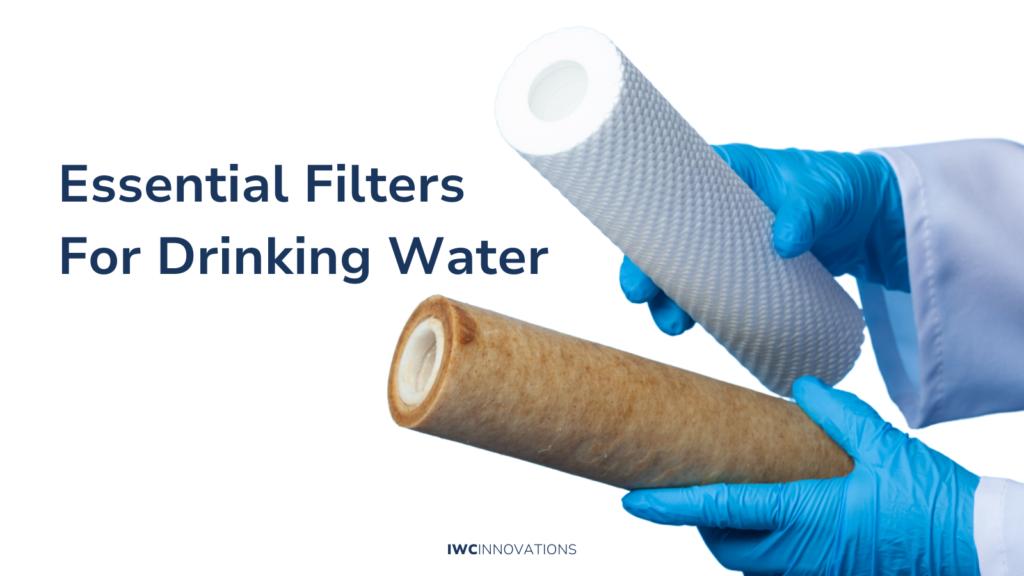

 Sediment Filters
Sediment Filters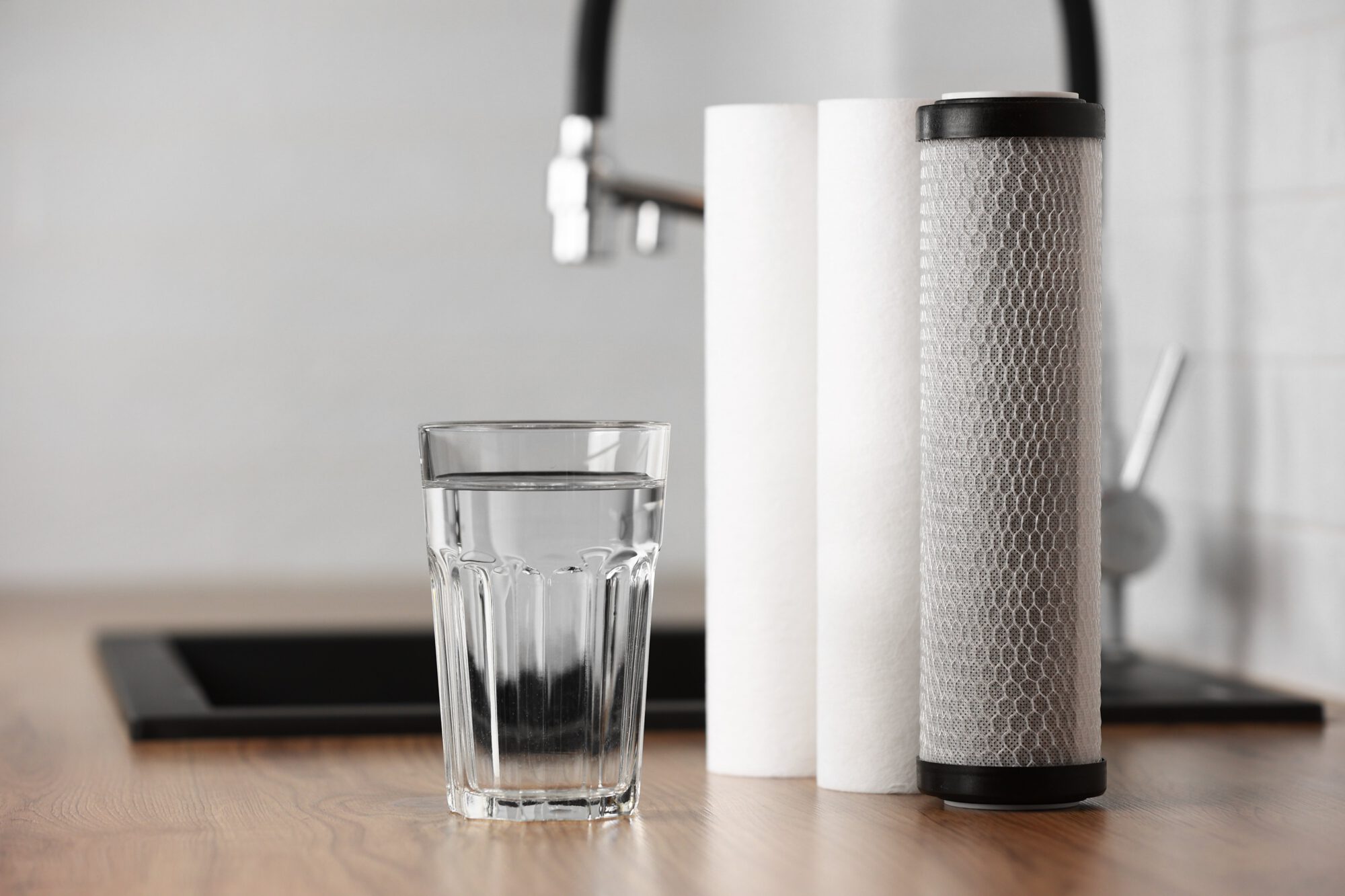 Activated Carbon Filters
Activated Carbon Filters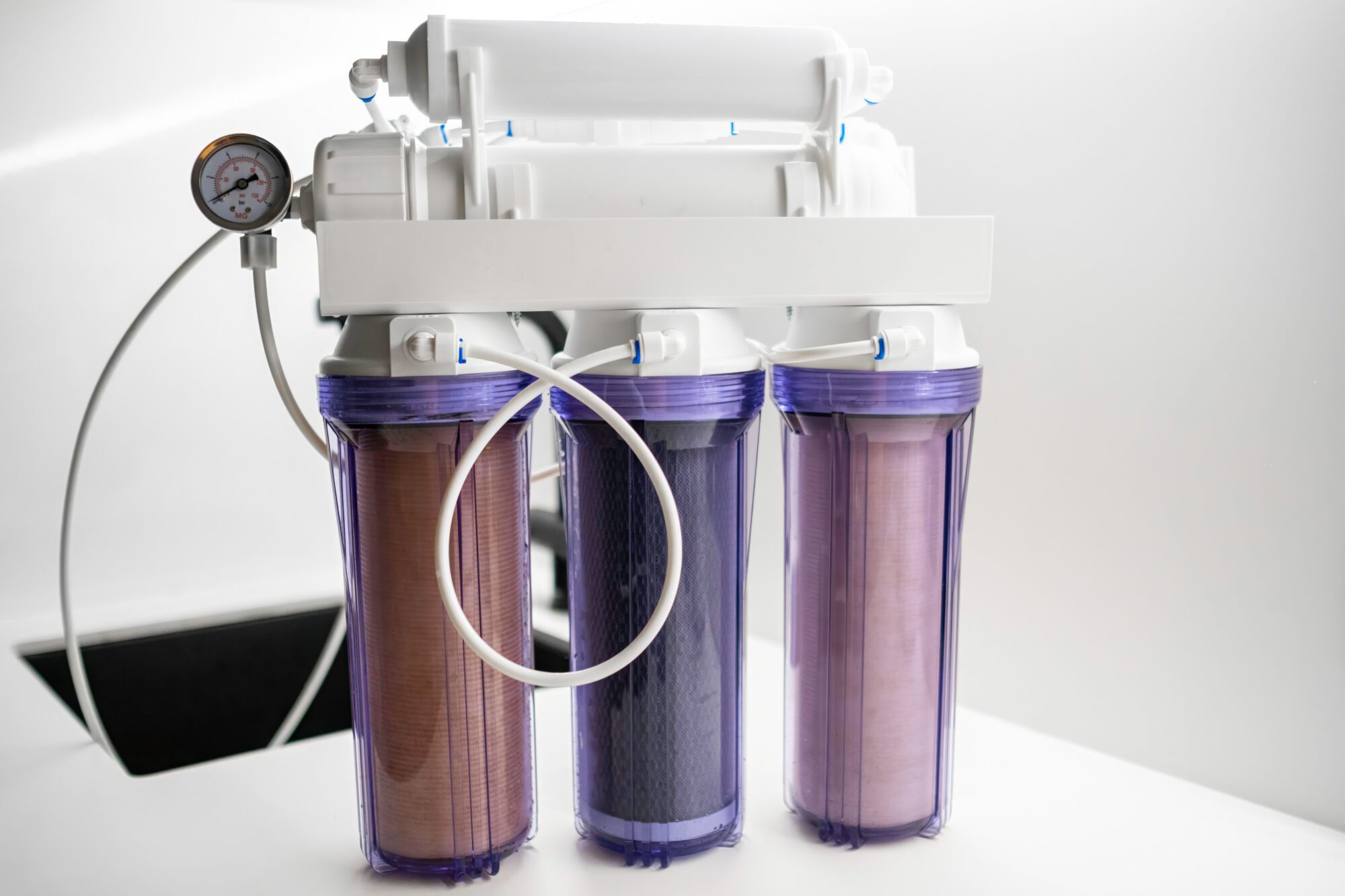 Reverse Osmosis (RO) Filters
Reverse Osmosis (RO) Filters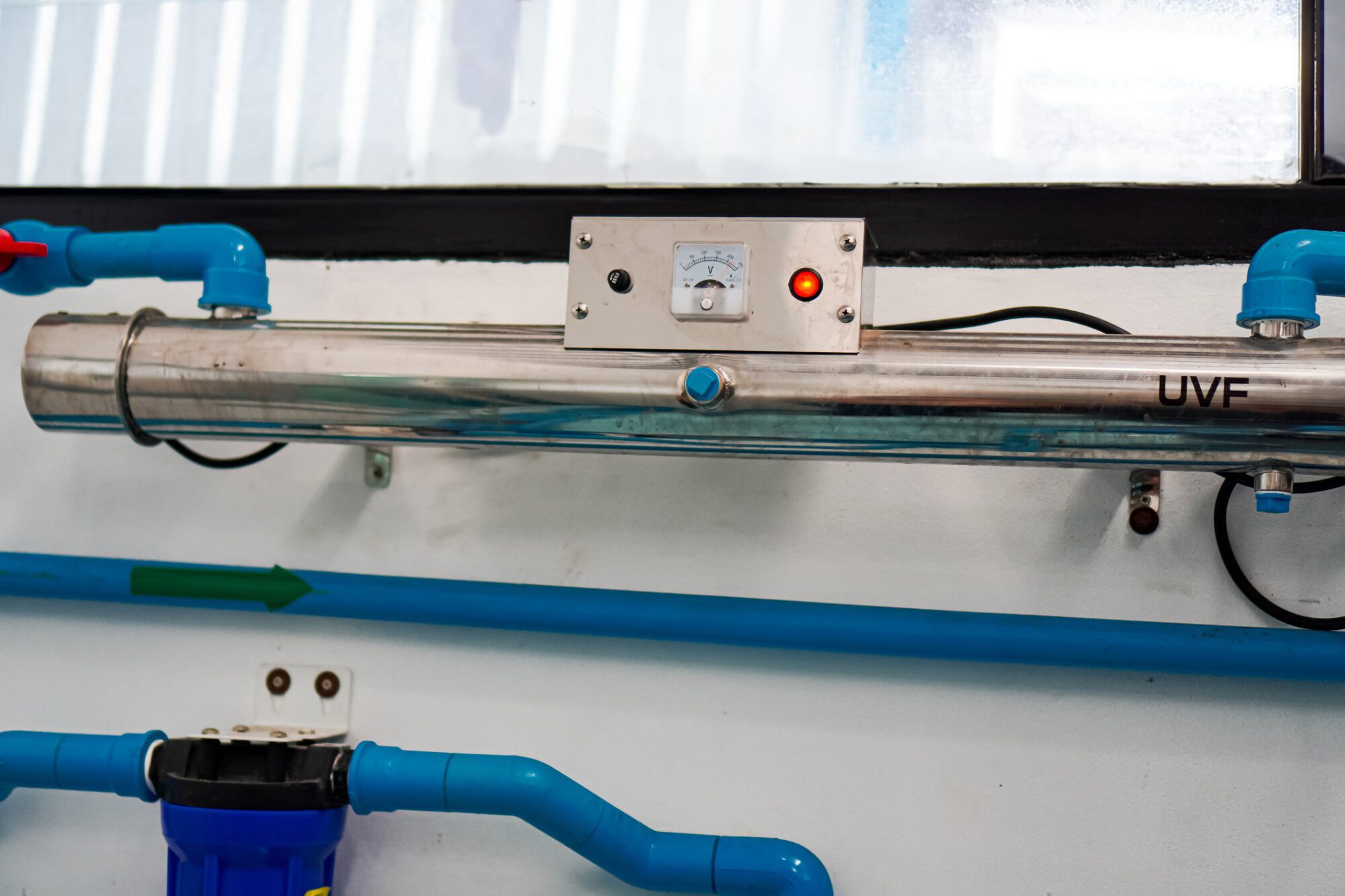 Ultraviolet (UV) Filters
Ultraviolet (UV) Filters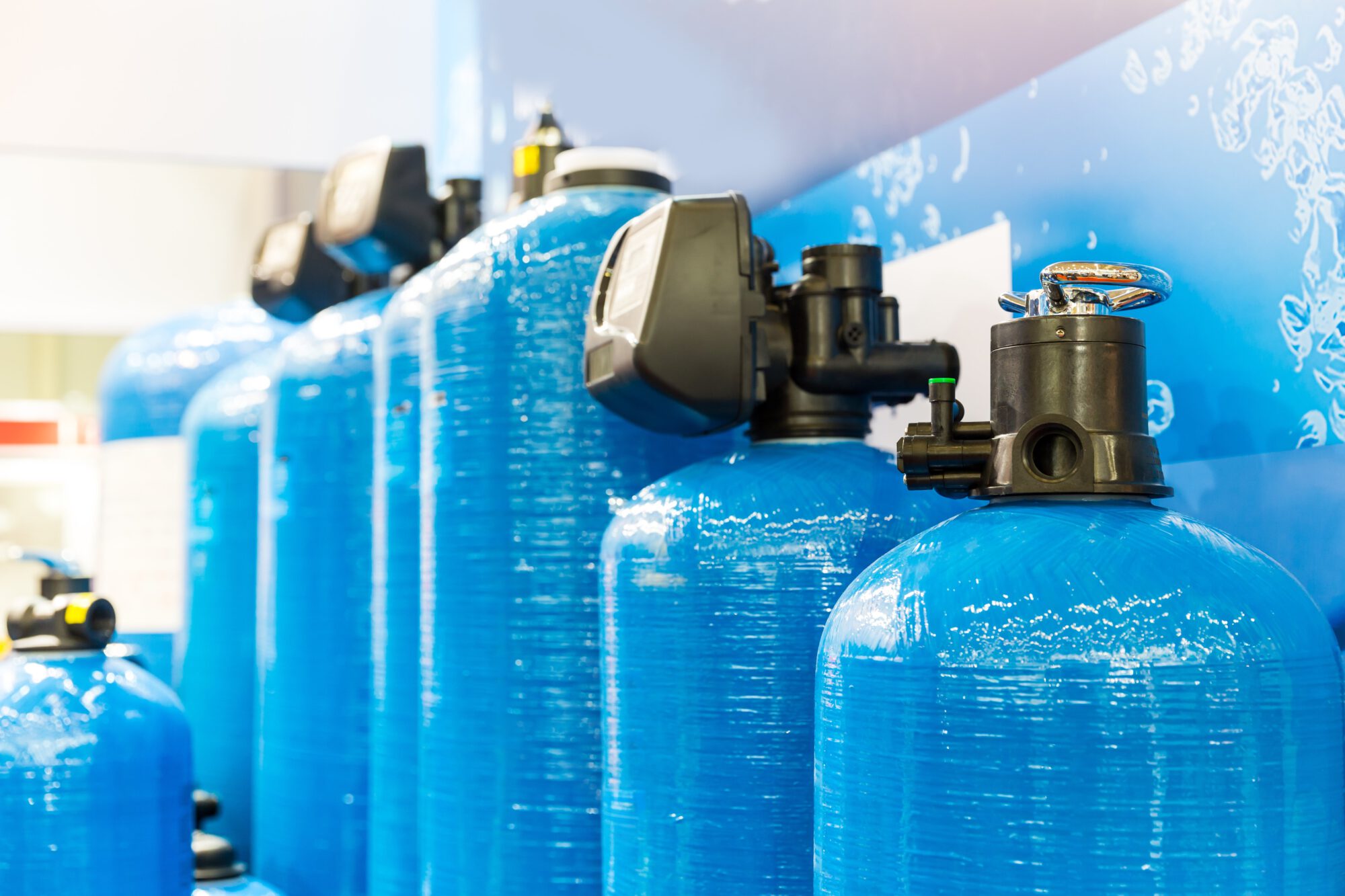 Ion Exchange Filters
Ion Exchange Filters Mechanical Filters
Mechanical Filters Sub-Micron Filters
Sub-Micron Filters

